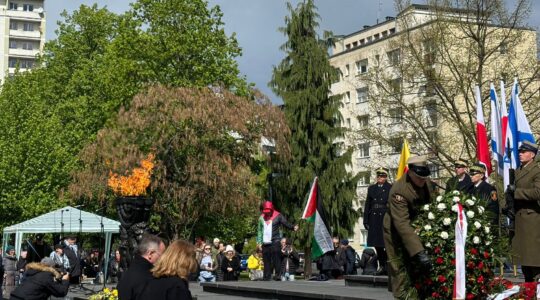(JTA) — Hundreds of activists and government officials from around the world are meeting in Berlin to discuss ways of countering anti-Semitism.
The conference, which was organized by the Organization for Security and Co-operation in Europe, will be held Wednesday and Thursday in the German capital. It marks the 10th anniversary of the OSCE conference on anti-Semitism and the Berlin Declaration, which urged OSCE member states to monitor and combat anti-Semitism through legislation and education.
More than 200 individuals from civil society groups, many of them from Jewish organizations, have registered to attend the event, which comes amid increased concern about rising anti-Semitism in Europe. Some 350 representatives of international organizations and governments from the 57 OSCE member states will also attend, according to Rabbi Andrew Baker, representative of the OSCE chair on combating anti-Semitism and director of international Jewish affairs for the American Jewish Committee.
For Baker, “the most pressing issue is providing physical protection and security to Jewish communities in Europe” in the wake of frequent attacks on Jewish institutions and individuals, including by jihadists.
While some European governments allocated extra funds and resources for protection of Jewish communities following recent attacks, “others are declining to do so,” Baker said. Beyond the issue of funds, he said, progress needs to happen on “recognizing the seriousness of the problems communities face.”
Baker said the “unique feature” of the conference is that it is “providing a platform for discussion” between NGOs and governments.
On a trip in September to Denmark, Baker heard from government officials that in Denmark, a “relaxed approach” is taken to security. Armed police are not posted outside Jewish institutions in Denmark because authorities fear it would make the general population feel uncomfortable.
“European governments are not fully prepared to confront the potential terrorist threat posed by returning jihadist fighters who can move freely inside the Schengen borders,” he said. “Such a person could be in Brussels in the morning and in Copenhagen or Budapest in the afternoon.”





